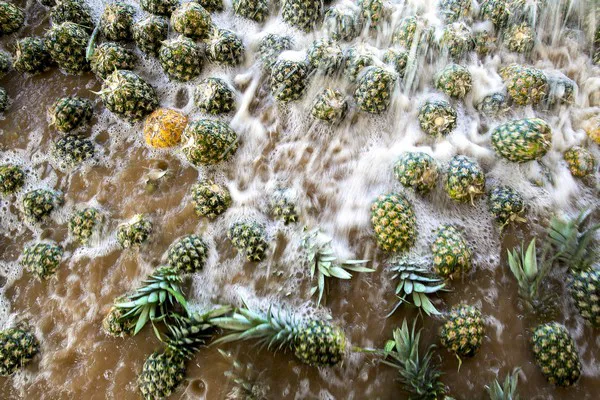In December of last year, we spoke with Niklas Tegtmeier, the head of a start-up that was created at the University of Hannover. At that time, paper was made from pineapple crowns under the name "Musa Fibra". In the meantime a lot has happened to the young team and they are now ready for the next step.
 © Upala Agricola S.A., Costa Rica
© Upala Agricola S.A., Costa Rica
"In the past year, we have worked on improving our processes and also developed further on the business side," CEO Tegtmeier reports. "We have decided to focus on the production of pulp, which can then be used by companies to manufacture paper or packaging. In this way, we are concentrating on our core competence - the production of the raw material."
There is still a huge interest in alternative materials in virtually every industry, so some companies have been found who are already testing the pineapple fibers. In order to be ready for the next step, a lot has been done in the last months: "We are part of the Hafven Accelerators program, which has given us the chance to further expand the business part of our company to support the technical side of the project. With our new name - eco:fibr - and a suitable logo we are now ready to take off. In the future, we do not only want to focus on pineapples, but we also want to recycle other waste from the food sector to alternative pulp."
© eco:fibr, Costa Rica
The 11-person team around Tegtmeier is now planning to build a factory in Costa Rica: "We are working with a plantation that wants to provide us with a building site. The waste produced in pineapple cultivation is a big problem in Costa Rica, so eco:fibr could make a big difference there."
Therefore the production of the pulp has to be tested on a larger scale. Not an easy undertaking: "Currently, we obtain the pineapple crowns we need, for example from supermarkets that have a pineapple slicer. However, we are talking about smaller quantities here. However, we would now need between 30 and 100 kg at a stroke in order to carry out appropriate tests."
Therefore, Tegtmeier also addresses the trade: "We are grateful for any help in this endeavor! We are looking for companies that dispose of larger quantities of pineapple crowns or plants that they cannot use."
For more Information:
Niklas Tegtmeier
eco:fibr
[email protected]
www.ecofibr.de
